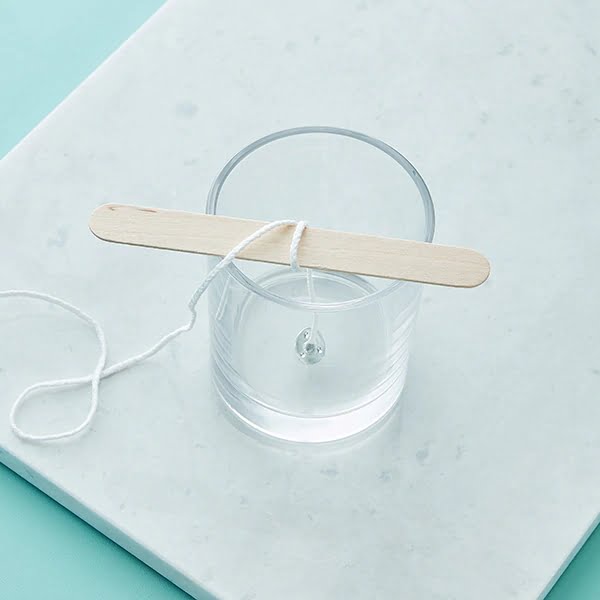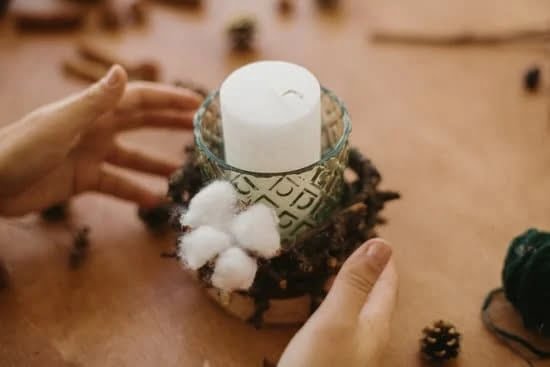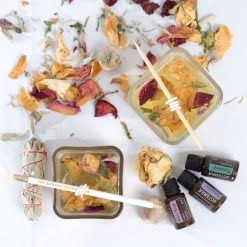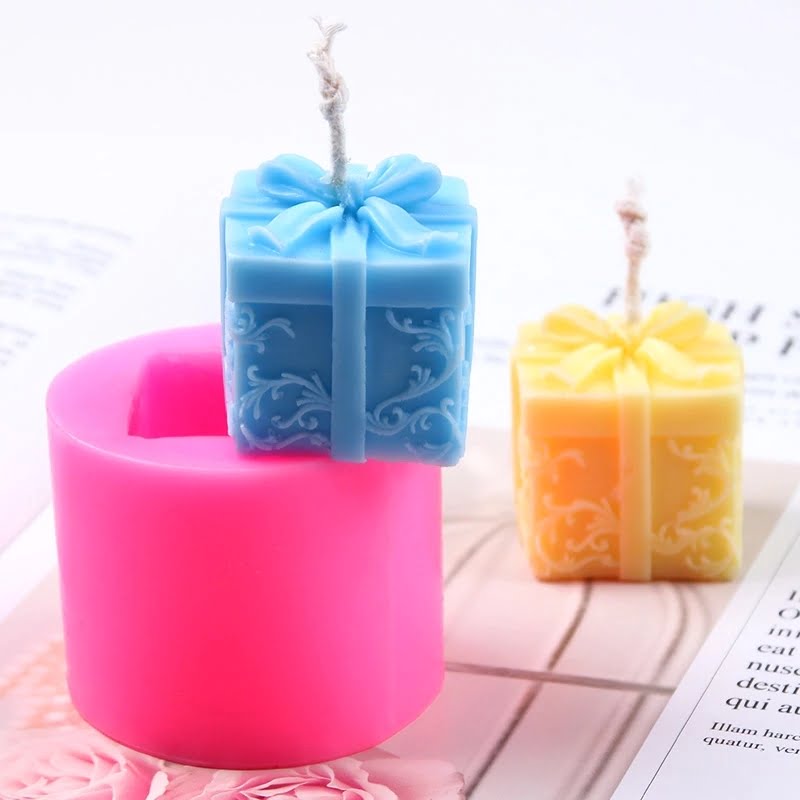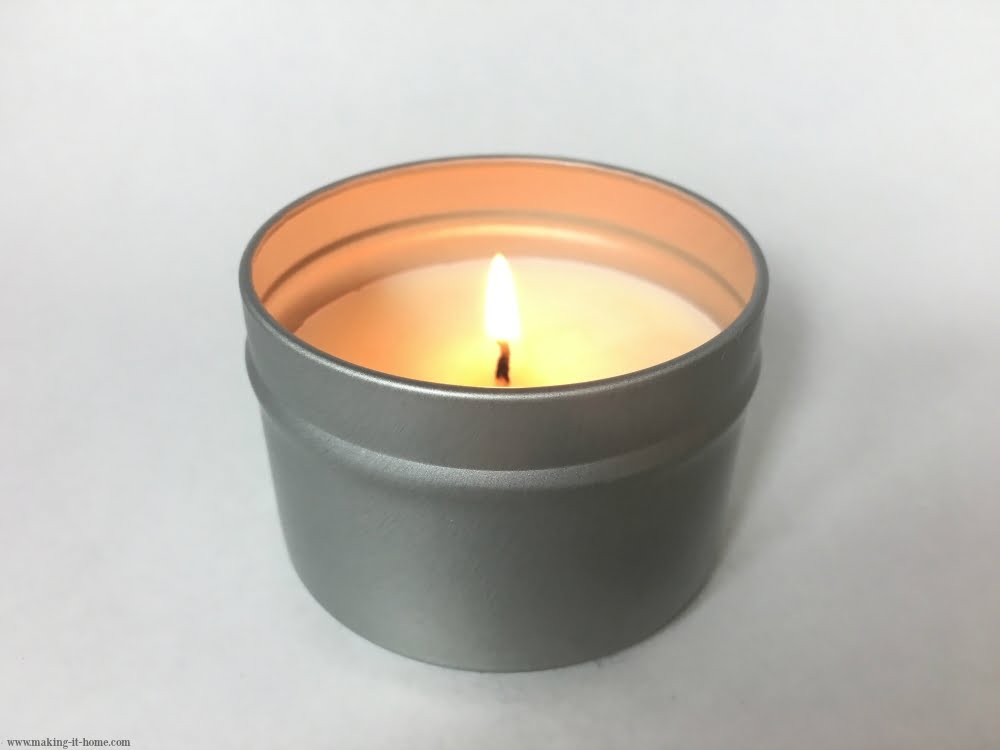Are you looking to elevate your candle making game? Look no further than candle making dye blocks.
These little blocks of concentrated color are a game-changer when it comes to creating beautiful and vibrant candles. In this article, we will dive into the world of candle making dye blocks, exploring their importance, different types, how to use them, tips for achieving the perfect color, common mistakes to avoid, creative ways to use them for unique designs, and how to choose the right dye blocks for your projects.
When it comes to candle making, color plays a crucial role in the overall appeal and aesthetics of the finished product. This is where candle making dye blocks come in. These highly pigmented blocks offer unparalleled versatility and ease of use, allowing you to achieve rich and consistent colors in your candles.
To get started with using dye blocks in your candle making endeavors, it’s important to understand the different types available on the market. From traditional solid colors to vibrant neon shades and even metallic hues, there is a wide variety of options to choose from. Depending on your desired result and personal preferences, each type of dye block offers its own unique benefits and effects.
The Importance of Using Dye Blocks in Candle Making
Candle making dye blocks are an essential component in the art of creating beautiful and unique candles. They are widely used by candle makers to add color to their creations, and their importance cannot be understated. The use of dye blocks allows for a wide range of colors to be achieved, giving candle makers the ability to create custom shades that appeal to their customers.
One of the primary reasons why candle making dye blocks are so important is their ability to provide vibrant and long-lasting colors. Unlike liquid dyes, which can sometimes produce muted or inconsistent results, dye blocks offer rich and intense hues that remain true throughout the life of the candle. This makes them particularly desirable for candle makers who want to produce high-quality products that will stand out in the market.
Furthermore, the use of dye blocks in candle making allows for greater control over the color intensity and shade. By adjusting the amount of dye added to the wax, candle makers can customize the color saturation to achieve their desired results. Whether it’s a subtle pastel hue or a deep and dramatic shade, dye blocks give artisans the flexibility to create candles that perfectly match their vision.
In addition, using dye blocks in candle making offers practical benefits such as ease of use and storage. Dye blocks are simple to handle and store, as they come in solid form and can be easily measured or shaved off according to specific color requirements. This makes them convenient for both small-scale crafters and large-scale manufacturers alike.
| Importance | Benefits |
|---|---|
| Provides vibrant and long-lasting colors | Allows for greater control over color intensity and shade |
| Practical benefits such as ease of use and storage | Dye blocks offer rich and intense hues |
Different Types of Candle Making Dye Blocks
Candle making dye blocks come in a variety of types and each type has its own unique characteristics that can impact the color and appearance of the finished candle. When choosing the right type of dye block for your candle making project, it’s important to consider factors such as the desired color, the type of wax you are using, and whether you want a solid or translucent finish.
Liquid Dye Blocks
Liquid dye blocks are highly concentrated and provide intense, vibrant colors. They are best used for creating bold, saturated shades in candles.
Granulated Dye Blocks
Granulated dye blocks are perfect for achieving a mottled or textured look in candles. They can create a marbled effect when mixed into the wax, adding depth and dimension to the finished product.
Opaque vs. Translucent Dye Blocks
Some dye blocks are designed to create opaque colors, while others are formulated to produce translucent hues. Opaque dye blocks are ideal for creating solid, uniform colors, while translucent dye blocks can be used to achieve a more subtle, layered effect.
When selecting the type of candle making dye block to use, consider experimenting with different types to see which best suits your specific design goals. Each type of block offers its own unique advantages and can contribute to creating beautiful and one-of-a-kind candles.
How to Use Dye Blocks in Candle Making
When it comes to adding color to your homemade candles, using dye blocks can be an excellent option. These small, concentrated blocks are specifically designed for candle making and offer a wide range of colors to choose from. Understanding how to use dye blocks effectively is crucial in achieving the perfect shade for your candles.
To use dye blocks in candle making, you will first need to melt your wax. Once the wax has reached the appropriate temperature, you can then add the desired amount of dye block into the melted wax. It is important to start with a small amount and gradually increase until you achieve the desired color intensity. Stir the mixture thoroughly to ensure that the dye block is fully incorporated into the wax.
One of the key benefits of using dye blocks in candle making is their versatility. Not only can they be used to create solid colored candles, but they also allow for experimentation with different color combinations and techniques such as layering and marbling. Additionally, using dye blocks gives you full control over the shade of your candles, allowing you to create custom colors that perfectly match your aesthetic vision.
| Types of Dye Blocks | Benefits |
|---|---|
| Standard dye blocks | Concentrated color, easy to use |
| Liquid dye blocks | Quick dispersion in wax, ideal for larger batches |
| Specialty dye blocks (e.g. metallic or fluorescent) | Create unique effects and finishes |
Tips for Achieving the Perfect Color With Dye Blocks
When it comes to creating beautifully colored candles, using dye blocks is a popular choice among candle makers. These concentrated blocks are specifically designed for adding color to candles, and they offer a wide range of shades and hues to choose from. However, achieving the perfect color with dye blocks requires some knowledge and skill. In this section, we will explore some tips for getting the best results when using dye blocks in your candle making projects.
Understanding Color Concentration
One important factor to consider when using dye blocks is the concentration of color. The amount of dye block you add to your wax will determine the intensity of the color in your finished candle. It’s essential to start with a small amount and gradually add more until you achieve the desired shade. Remember that a little goes a long way with dye blocks, so start with a conservative approach and adjust as needed.
Layering and Mixing Colors
Another tip for achieving the perfect color with dye blocks is to experiment with layering and mixing different shades. By melting layers of differently colored wax or blending multiple colors together, you can create unique and custom hues for your candles. This allows for endless possibilities in terms of color combinations, giving you the freedom to craft candles that perfectly match your vision.
Testing Before Pouring
Before pouring your wax into the molds, it’s crucial to test the color by pouring a small amount into a separate container. This allows you to see how the color will appear once the wax has cooled and solidified.
It’s much easier to make adjustments at this stage rather than after the entire batch has been poured. Additionally, keep in mind that certain waxes may affect how the color appears once it has set, so always perform a test before committing to larger quantities.
By taking these tips into consideration, you can ensure that your candles come out in stunning colors that captivate customers or loved ones alike.
Common Mistakes to Avoid When Using Dye Blocks
When it comes to using dye blocks in candle making, there are some common mistakes that beginners and even experienced candle makers should avoid. One of the most frequent errors is not properly measuring the amount of dye blocks needed for a specific candle size.
Using too much or too little dye can result in an uneven color distribution or a faded hue that doesn’t match the desired shade. It’s important to follow the recommended guidelines for dye block usage provided by the manufacturer to achieve the best results.
Another mistake to avoid is not fully incorporating the dye blocks into the melted wax. Simply dropping the dye block into the wax and assuming it will disperse evenly can lead to clumps of concentrated color that don’t blend seamlessly with the rest of the wax. To prevent this, it’s essential to stir the melted wax thoroughly after adding the dye blocks, ensuring that they are completely dissolved and mixed in.
Additionally, overlooking the temperature at which dye blocks are added to the wax can also lead to issues with color consistency. Adding dye blocks at too high or too low of a temperature can result in uneven coloring or poor adhesion to the wax.
It’s crucial to follow the recommended temperature range specified for each type of dye block during the candle making process. By avoiding these common mistakes, candle makers can achieve more consistent and vibrant colors in their finished products using dye blocks.
Creative Ways to Use Dye Blocks for Unique Candle Designs
When it comes to creating unique candle designs, the use of dye blocks in candle making can be a game-changer. Dye blocks not only add color to your candles but also open up a world of creative possibilities. Here are some creative ways to use dye blocks for unique candle designs:
1. Layered Colors: One way to make your candles stand out is by creating layered colors using dye blocks. Start by pouring a layer of one color, allowing it to set, and then pour another layer of a different color on top. Repeat this process with as many colors as you like to create beautiful and eye-catching layered candles.
2. Swirl Designs: Use multiple colors of dye blocks to create swirl designs in your candles. Melt different colored wax and carefully pour them into the candle mold while swirling them together. This technique creates stunning patterns and gives each candle a one-of-a-kind look.
3. Ombre Effect: Achieve a subtle and elegant ombre effect by using varying concentrations of dye blocks in different batches of wax. Gradually change the intensity of the color from light to dark as you pour the wax into the mold, resulting in a visually striking ombre effect.
Additionally, don’t be afraid to mix and match different colors and experiment with various techniques such as marbling or using stencils for unique patterns. The versatility of dye blocks allows for endless creativity in designing your candles.
Choosing the Right Dye Blocks for Your Candle Making Projects
When it comes to choosing the right dye blocks for your candle making projects, there are a few factors to consider. The color and quality of the dye blocks can have a big impact on the final look and performance of your candles. Here are some tips for selecting the best dye blocks for your candle making endeavors:
- Color Selection: One of the most important considerations when choosing dye blocks is the color. Think about the type of candles you want to create and what colors will best complement your overall design or theme. Whether you’re going for bold, vibrant hues or soft, pastel tones, make sure to choose dye blocks that will help you achieve the desired color palette.
- Quality: The quality of the dye blocks is crucial in ensuring that your candles turn out beautifully. Look for high-quality, non-toxic dye blocks that are specifically designed for candle making. Inferior quality dyes can result in uneven coloring, poor burn performance, and may even affect the fragrance throw of your candles.
- Compatibility: Consider the type of wax you’re using for your candles when selecting dye blocks. Certain dyes may be better suited for specific types of wax, so it’s essential to choose dye blocks that are compatible with the wax you’ll be working with.
In addition to these considerations, it’s also helpful to read reviews from other candle makers to see which brands and types of dye blocks have worked well for them. By doing thorough research and considering these factors, you can ensure that you choose the right dye blocks for your candle making projects.
Lastly, don’t be afraid to experiment with different colors and combinations to achieve unique and custom shades for your candles. Whether you’re creating a signature line of scented candles or crafting one-of-a-kind designs for special occasions, choosing the right dye blocks is an essential step in achieving beautiful and vibrant candles that will delight your senses and enhance any space.
Conclusion
In conclusion, candle making dye blocks are an essential and versatile tool for anyone interested in creating beautiful and unique candles. The importance of using dye blocks in candle making cannot be overstated, as they offer a wide range of benefits that other types of dyes may not provide. From achieving the perfect color to creating stunning and creative designs, dye blocks have proven to be a valuable asset in the candle making process.
One of the key advantages of using dye blocks is the ease of use and versatility they offer. Whether you are a beginner or experienced candle maker, these dye blocks can be easily incorporated into your projects to achieve the desired results. Additionally, with different types of dye blocks available on the market, you have the freedom to choose the right one based on your specific needs and preferences.
Furthermore, by avoiding common mistakes and following helpful tips, you can ensure that you achieve the perfect color and design for your candles when using dye blocks. It’s important to remember that by experimenting with different techniques and being creative, you can discover new and innovative ways to use dye blocks for truly unique candle designs.
Overall, choosing the right dye block for your candle making projects can make all the difference in creating beautiful and high-quality candles that will delight both yourself and others.
Frequently Asked Questions
How Do You Add Dye Blocks to Candle Wax?
Adding dye blocks to candle wax is a relatively simple process. First, you need to melt the candle wax in a double boiler. Once melted, you can add in the desired amount of dye blocks and stir until fully mixed.
Is Liquid or Block Dye Better for Candles?
The choice between using liquid or block dye for candles depends on personal preference and the desired outcome. Block dyes are easy to measure and handle, while liquid dyes offer more flexibility in color intensity and blending.
What Are Candle Dye Blocks?
Candle dye blocks are solid, concentrated blocks of color specifically designed for coloring candle wax. They come in various colors and are easily measured and added to melted wax without any mess or spillage.

Welcome to my candle making blog! In this blog, I will be sharing my tips and tricks for making candles. I will also be sharing some of my favorite recipes.

